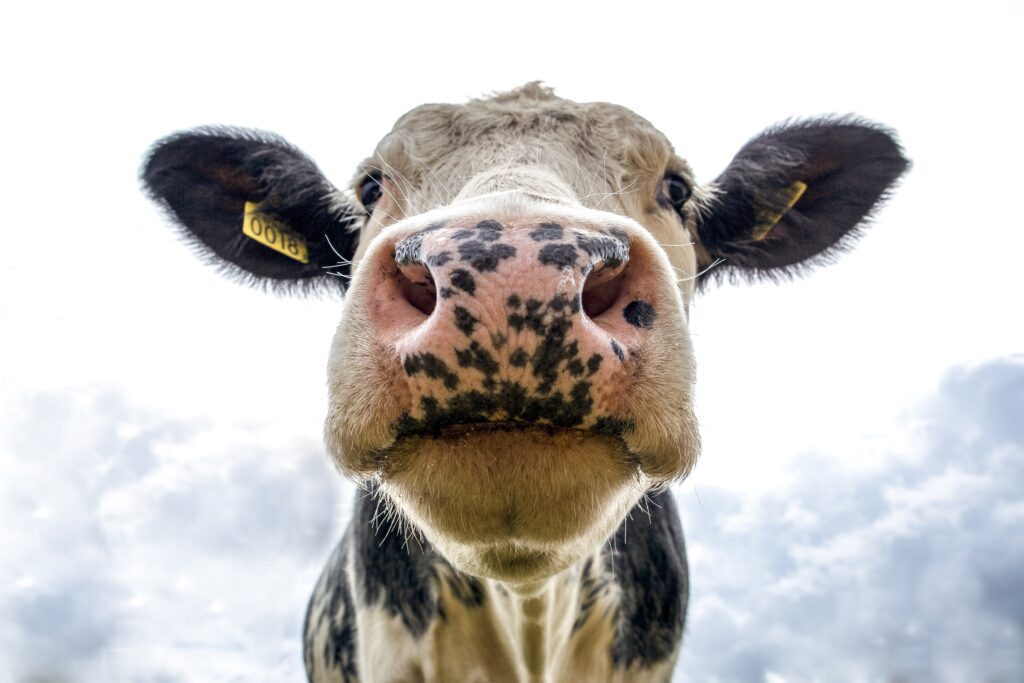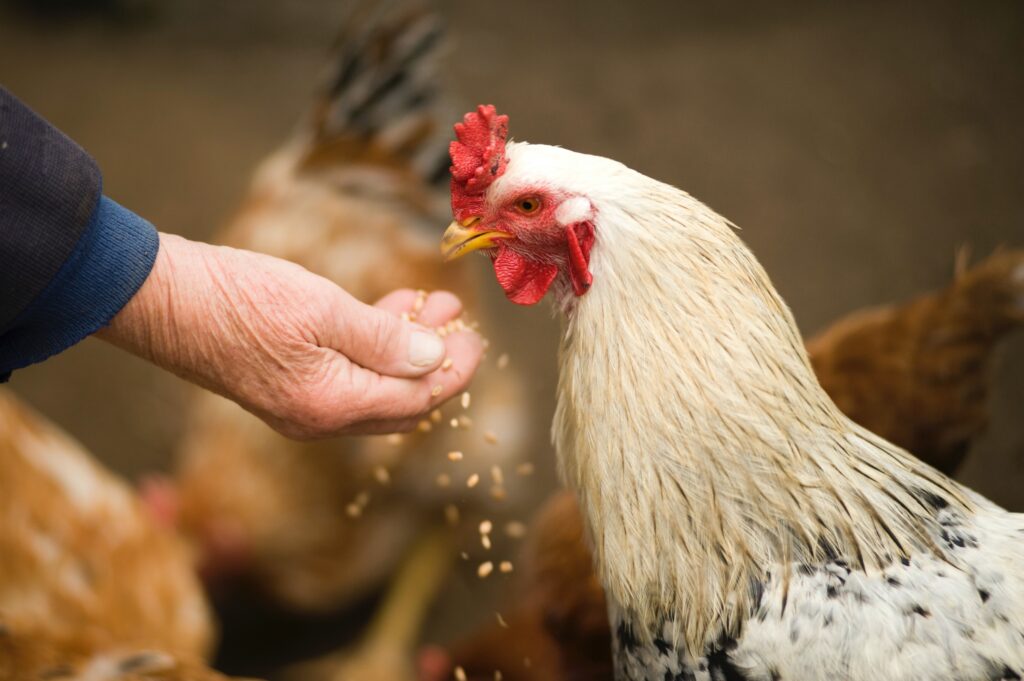The use of antibiotics in livestock farming has raised concerns regarding its impact on human health. Recently, the discovery of fluoroquinolone, a critical antibiotic used in human medicine, being used in chicken farms supplied to the Polish export company SuperDrob, has caused alarm among British consumers. This article delves into the dangers of using antibiotics crucial to human health in livestock and highlights the health benefits of consuming from farms that do not employ antibiotics or hormones in their practices.
Halal Origins ensures that all of its stock is sourced from organic farms that respect the sanctity of the animal’s natural lives. This means neither pesticides, hormones, nor anti-biotics are routinely given to the animals, unless they are genuinely sick. Unfortunately, normal farming practices use antibiotics in advance of sickness as a precaution, which ironically poses a much bigger threat to human health in the long-term.
We, and indeed our customers find that the quality of our organic meat is noticeably better in terms of texture, taste, and for our health, and we want you to enjoy these benefits too.
The Threat of Antibiotic Resistance
Antibiotics play a vital role in treating bacterial infections in humans. However, their overuse and misuse in livestock farming can lead to the development of antibiotic-resistant bacteria, posing a significant threat to human health. Fluoroquinolone is a potent antibiotic that is critical for treating various infections in humans. Its use in chicken farms supplied to SuperDrob raises concerns about the potential transmission of antibiotic-resistant bacteria to British consumers.

In a nutshell, this means that the medication that we rely on will not be effective against these ‘super-bugs’ and that should scare us into stopping the practice of dosing animals with our medicines.
The pandemic of 2020 has given us valuable insight into how quickly and dangerously an infection can spread. Without adequate medication to combat such a health threat, human health is a serious risk of jeopardy. It is easy to dismiss the risk of these threats because it is invisible and it is difficult to predict when it will materialise, but it is nonetheless real and inevitable.
The Connection to Food Safety
There is no escaping the fact that every time you eat food, both frut, vegetables, and meat, you are consuming bacteria with it and these bacteria strains are introduced those to your body’s internal ecosystem where it can either do harm or good.
If these antibiotic-resistant bacteria enter the human body, they may cause infections that are difficult to treat because they have evolved to be resilient due to the very antibiotics that we depend on. This is especially a cause for concern for the elderly.
This highlights the urgent need to address the issue of antibiotic use in livestock farming, and while EU legislators do monitor this, irradicating the practice entirely is difficult in mass producing farms. Luckily, there is an alternative market for those that wish to ensure that their food is antibiotic free ad that’s the organic meat market.
____________________________________________________________________________
Must read: organic vs non-organic, is there a difference?
____________________________________________________________________________
The SuperDrob Case and British Consumer Safety
It has recently emerged that SuperDrob, the Polish company that supplies the likes of Lidl, Aldi, and other major retailers, have been purchasing meat from farms that use fluoroquinolone on their chickens. British consumers are unknowingly taking risks with their health, a risk they would unlikely accept if they knew the true extent of the risks.
Drug resistance bacteria is already a leading cause of death worldwide, killing approximately 1.2 million people each year. It is essential that our government, regulators, and international policy makers, take serious action to eliminate this practice, but responsibility also falls on the consumer.
Eating organic meat is safer and provides higher quality produce. The animals are treated much better and they live happier lives. What is good for the animals is also good for us as consumers of them. Eating organic meat is the only sensible and viable option to take control over your health with regard to this growing threat.
The Health Benefits of Organic Meat
Organic farming practices prioritize the well-being of animals and promote sustainable agricultural methods. Organic farms do not use antibiotics or hormones on their livestock, allowing consumers to make healthier choices for themselves and their families.
Research has shown that organic meat offers several health benefits compared to conventionally raised meat. In light of the risks associated with antibiotic use in livestock, the demand for organic meat has surged.
Organic meat is less likely to contain antibiotic-resistant bacteria, as animals are not exposed to antibiotics, which means antibiotics are more likely to be effective when you deploy them.
Organic meat from animals raised without antibiotics or hormones often exhibits higher nutritional value. A study published in Food Chemistry found that organic meat, such as lamb, beef, pork, and chicken, tends to have higher levels of essential nutrients such as omega-3 fatty acids, vitamin E, and antioxidants.
Children, in particular, may benefit from consuming organic meat due to their developing immune systems and higher susceptibility to the adverse effects of antibiotics. By choosing organic meat, parents can reduce the risk of exposing their children to antibiotic residues and antibiotic-resistant bacteria.
Organic farming practices prioritize the welfare of animals, ensuring they are raised in natural environments with access to open spaces and a healthy diet. By consuming organic meat, individuals can support ethical and humane treatment of livestock, contributing to a more sustainable and compassionate food system.
Organic farming methods emphasize sustainability and environmental stewardship. These farms promote biodiversity, conserve water and soil, and avoid the use of synthetic pesticides and fertilizers. Choosing organic meat helps to reduce the environmental impact of conventional farming and supports a more ecologically balanced approach to agriculture.
What about the price difference?
It is important to acknowledge that organic meat typically comes with a higher price tag compared to non-organic options. This price difference is due to the higher costs associated with organic farming practices, such as organic feed, longer growth periods, and increased labor requirements. However, when considering the long-term health implications and potential medical costs associated with antibiotic-resistant infections, the investment in organic meat can be viewed as a wise and proactive choice.
Health is Wealth
The adage “health is wealth” holds true when it comes to making choices about the food we consume. While organic meat may be more expensive, its health benefits outweigh the price difference, if longevity and well being is your goal.
It is striking how many people will pay for a gym membership, sometimes an expensive one, but then opt for cheaper quality meat ingredients that pose a significant risk to their overall health. If you are someone that invests in your health, what you do outside of the gym is just as important as what you do inside of it, and there isn’t anything more important than your diet and perhaps a good night’s sleep.
That said, organic meat is definitely worth the additional cost for peace of mind.
Final Thoughts
The use of antibiotics that are critical to human health in livestock farming poses a significant risk to public health. Recent findings regarding the use of fluoroquinolone in chicken farms supplied to SuperDrob have highlighted the potential threat to British consumers.
In contrast, choosing organic meat from farms that do not employ antibiotics or hormones offers numerous health benefits, including reduced antibiotic resistance, higher nutritional value, and support for animal welfare and the environment. Despite the price difference, the long-term advantages of consuming organic meat make it a valuable investment in one’s health and well-being.
Halal Origins plays a crucial role in supporting ethical farming practices, while ensuring that you get the highest quality organic meat that is not only good for your health, but good for your wealth, because we do our best to make our products as affordable as we can, so no one has to compromise their health because of their budget.
Check out our organic meat options today, you will be glad that you did.

